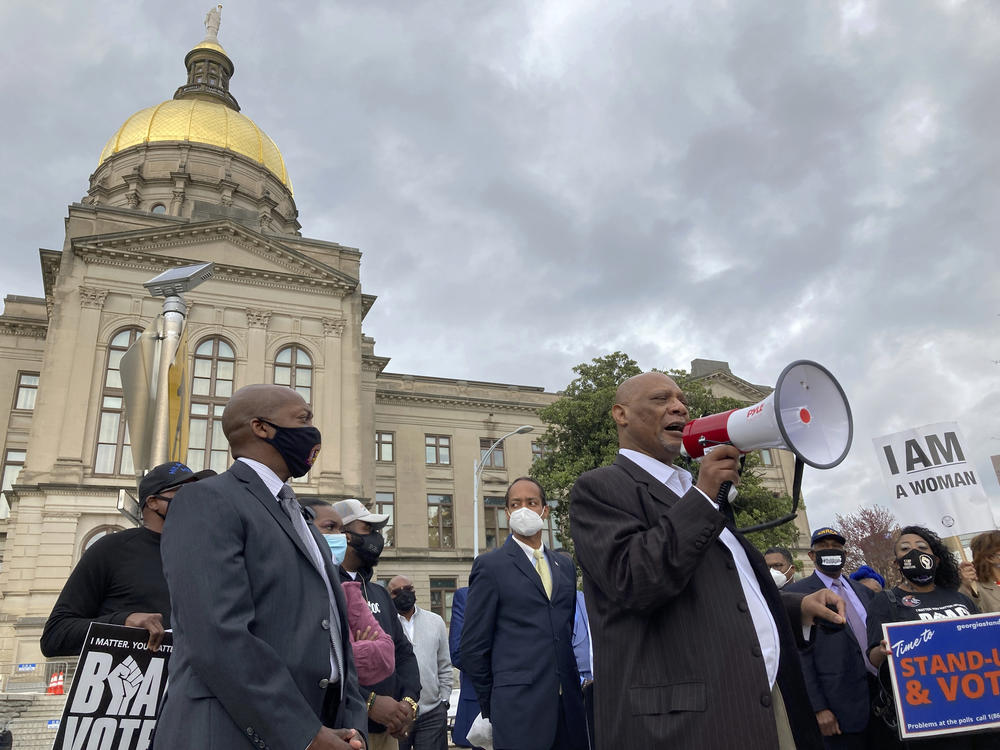
Caption
In this March 25, 2021, file photo African Methodist Episcopal Church Bishop Reginald Jackson announces a boycott of Coca-Cola Co. products outside the Georgia Capitol in Atlanta. Jackson says Coca-Cola and other large Georgia companies haven't done enough to oppose restrictive voting bills that Georgia lawmakers were debating as Jackson spoke.
Credit: Jeff Amy, AP




